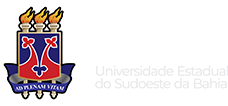Southwest Bahia State University (UESB) celebrated its 40th anniversary in 2020 and is currently one of the leading institutions responsible for the dissemination of knowledge and training of professionals in the interior regions of Bahia and the north of Minas Gerais. It stands as one of the leading references in Higher Education in Brazil’s North and Northeast regions. In addition to offering dozens of on-campus and hybrid undergraduate programs, UESB also provides access to high-quality postgraduate programs such as Graduate Diplomas, Master’s, and Doctoral degrees renowned throughout Brazil.
The University offers undergraduate courses designed to meet social demands for higher education. education. Each year, UESB offers over three thousand spots across 47 undergraduate courses at its campuses in the cities of Itapetinga, Jequié, and Vitória da Conquista. Half of these openings are filled through the university’s annual entrance exam (Vestibular –it is similar to American College Testing – ACT), while the other half are available through the Unified Selection System (SISU), a Federal Government platform that considers student performance on the National High School Exam (ENEM).
Each semester, the University graduates hundreds of higher education professionals, researchers, and teachers across various fields of knowledge. UESB’s undergraduate teaching degrees cover almost all areas related to Basic Education teacher training while its bachelor’s degrees span all fields of knowledge, including: Arts and Humanities; Social Sciences, Business, Law; Science, Mathematics and Computing; Engineering, Production and Construction; Agriculture and Veterinary Sciences; and Health and Social Well-being.
In recent years, UESB has also made significant strides in expanding its graduate programs. The number of stricto sensu graduate programs has increased: the University currently offers 24 Master’s Programs and 11 Doctoral Programs. In addition, it provides lato sensu Graduate Programs, having offered more than 60 postgraduate courses over the past decade.
Fulfilling its mission as a center for knowledge production, the university has seen significant growth in innovation and scientific research initiatives supported by institutional policies that encourage creative and groundbreaking ideas. Aligned with this mission is UESB’s student mobility policy, which has enabled many students to pursue academic opportunities at other institutions, especially abroad.
In pursuit of social development, the University has enhanced its outreach and extension activities, reaching over one million people in recent years. Through community engagement, UESB distributes knowledge and fosters a humanized educational experience for its students. The University also upholds policies aimed at student access, inclusion, and retention. Notable initiatives include the Affirmative Action Quota System, the Student Assistance Program, and Specialized Educational Support Services.
To better serve its academic community, UESB has expanded its infrastructure by constructing new buildings and facilities. Spanning an area of 1,110,543.21m², the University comprises over 70 academic departments, 166 classrooms and 218 laboratories. Aiming to ensure optimal teaching and learning conditions, classrooms are equipped with glass/white boards, free Wi-Fi, multimedia resources, and air conditioning.
Another key strength of UESB is the high qualification of its faculty and administrative staff. These highly trained professionals contribute to the University’s national recognition. Indicators such as the General Course Index (IGC) ranks UESB among Brazil’s top Higher Education Institutions. Since 2014, UESB has consistently maintained an IGC rating of 4, demonstrating the excellence of its undergraduate and graduate programs.


 Assessoria de Comunicação da UESB - tel:77 3424.8645
Assessoria de Comunicação da UESB - tel:77 3424.8645

